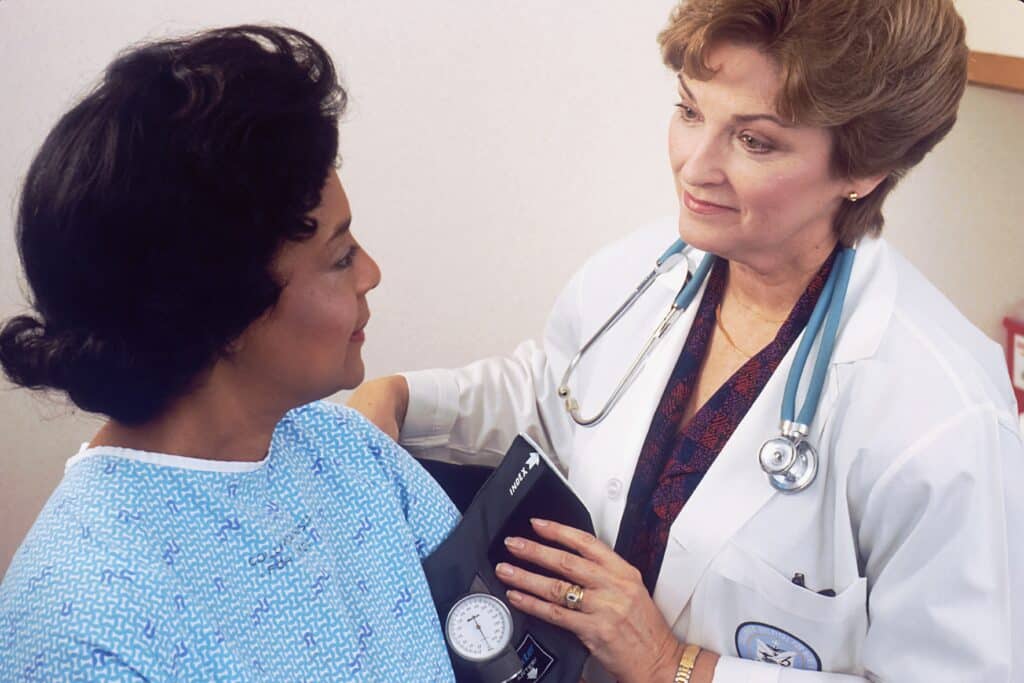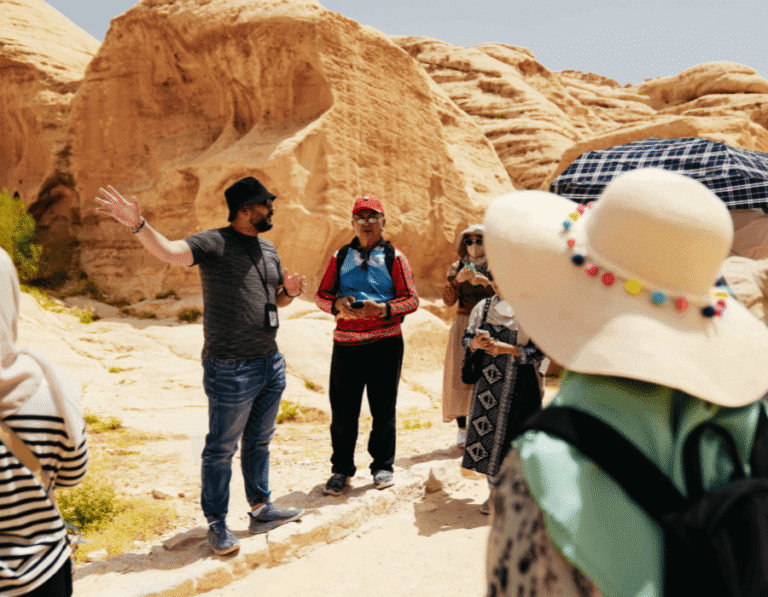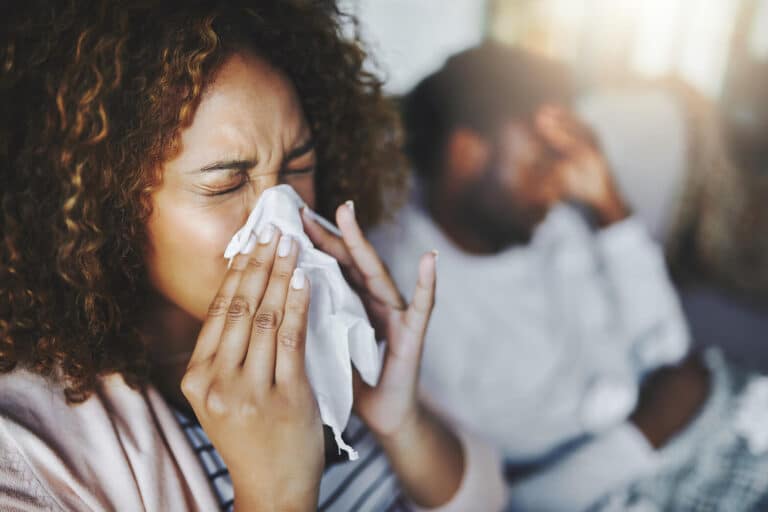Colonoscopy. A word that can be anxiety-inducing for both men and women. But it’s also the gold standard for detecting many harmful gastrointestinal issues.
Colonoscopies allow gastroenterologists to remove precancerous polyps, which are small lumps of cells that form on the lining of the colon and detect early-stage colorectal cancer, ultimately saving lives.
Colorectal cancer is one of the deadliest types of cancer. But it’s also one of the most preventable if people follow instructions and get scoped. According to the American Cancer Society, adults with an average colorectal cancer risk should start screening at age 45. Depending on family history and colorectal health, these screening tests should be repeated anywhere from every ten years to every three to five years.
What Happens During Colonoscopies?
A colonoscopy is performed by a gastroenterologist and lasts approximately 30-60 minutes. Patients are given medication to make them feel relaxed and drowsy and are asked to lie on their left side on the examination table. The doctor uses a colonoscope, basically a long, flexible tube with a camera on the end, to perform the procedure. This scope is inserted through the rectum and is slowly advanced to the end of the large intestine, allowing the doctor to check for any abnormalities.
The scope bends so the doctor can easily move it around the curves of the colon. Patients may occasionally be asked to change position to help the doctor move the scope. If a doctor sees anything abnormal, they might take a small amount of tissue for analysis, and abnormal growths, or polyps, can be identified and removed.
Are Colonoscopies Really More Complicated For Women?
Although no two colonoscopies are exactly alike, doctors consistently say that it’s more challenging to perform colonoscopies on female patients. But why?
Well, the technical aspects of the procedure differ between the two genders. One reason may be the long and winding female colon. On average, female colons are longer than those of men, making the procedure more technically complex. It’s also often squished into a smaller abdominal cavity, meaning a gastroenterologist must maneuver the scope through more twists and angles. Young, thin women often have sharp, angular intestines, which is why this is one of the most challenging patient populations to perform the procedure on. In contrast, older intestines are easier to examine since the tissue connecting the intestines to the abdominal wall slackens with age.
The female colon is also more likely to dip into the pelvis. Due to this, loops form can form along the scope. If loops form, the doctor needs to pull back and adjust the scope to undo them. Until corrected, loops can stretch out the colon walls, and even sedated patients may exhibit signs of pain. Thankfully you won’t remember it. One paper said discomfort from looping is “possibly the most common patient-related source of difficulty” encountered in performing a colonoscopy.
This heightened challenge with scoping female patients is linked to unfavorable results. Since women are more likely than men to suffer colon perforations, it can lead to incomplete procedures and pain. The risk for pain during un-sedated colonoscopies is increased for women with previous abdominal and gynecological surgeries. Particularly for women who have had a hysterectomy.
Experience is the most crucial factor in helping gastroenterologists overcome the challenges associated with female colonoscopies.
Note: A colonoscopy is considered incomplete if a gastroenterologist doesn’t reach the beginning point in the large intestine, called the cecum. Examining this area is crucial for colorectal cancer screenings because cancerous cells can form in the cecum. Naturally, doctors who’ve performed a higher number of colonoscopies have fewer problems reaching the cecum successfully and in a timely manner. However, one study found that among gastroenterologists with less experience, delays in reaching the cecum are longer and more common with female patients.

In addition to the complicated nature of female colonoscopy procedures, research also suggests that female patients have more pre-procedure anxiety than men do.
While efforts are underway to train doctors with expertise in the female colon, they are far and few between. Brown University has started to introduce women’s health training into its gastroenterology fellowship. While a handful of gastroenterologists across the United States lecture and conduct training on women’s health, the Brown program is the only one of its kind.
While we’re on the topic of gut and abdominal health, you may want to read this blog on must-eat probiotic foods next.
Questions to Ask Before A Colonoscopy
Although many gastroenterologists are getting more familiar with women’s health issues, female patients are still encouraged to ask their doctors some questions before they schedule a procedure.
Tell your doctor about any past surgeries and discuss plans for sedation. Research suggests sedation wears off faster in women and, therefore, should be tailored to the needs of the patients. While some patients do un-sedated colonoscopies, that number is shrinking.
Ask your doctor what kind of scope they plan to use. While there’s no one-scope-fits-all colonoscopy, many doctors choose to use different tools to excavate women’s long, angular colons. The norm is quickly becoming a pediatric colonoscope.
Ask your doctor about pregnancy. Women who are pregnant or trying to get pregnant should chat with their doctor about the safety of the colonoscopy. One study found that colonoscopies are safe during the second trimester, but most women are advised to hold off until after they’ve given birth.
Colonoscopy Prep: Some Basic Tips
There may be some diet or fluid restrictions before you undergo a colonoscopy. This will vary according to your doctor’s instructions. You might also be asked to limit or eliminate solid foods for a few days before your scope, and might be given oral laxatives.
Arrange for someone to take you home after your colonoscopy. Since you are given sedatives during the procedure, it won’t be safe for you to drive or operate machinery for 8 hours after the procedure.

Is A Colonoscopy Painful?
Many people are nervous about discomfort or feeling pain during the procedure, but this shouldn’t deter you from getting scoped. Approximately 99% of procedures in the US are performed under deep sedation, meaning patients are asleep for the procedure and don’t feel any pain.
Common sedation options for colonoscopy procedures:
- Light sedation: The patient will feel relaxed and sleepy but most likely still awake. The patient can respond to the doctor, follow instructions, and may feel some pain or discomfort.
- Moderate sedation: The patient will feel drowsy and may go in and out of sleep. They will most likely not remember the procedure.
- Deep sedation: The patient is asleep, does not feel any pain, and does not remember the procedure. They will wake up feeling groggy.
- General anesthesia: The patient is unconscious and unaware of the procedure. When under general anesthesia, patients do not feel any pain or discomfort.
While it may require more technical skill and experience to perform colonoscopies in women with sedation or general anesthesia, female patients should not feel any pain or discomfort from a colonoscopy.
Colonoscopy Aftercare
After your colonoscopy, you will stay in a recovery room for about 30 minutes for observation.
After undergoing a colonoscopy, the most common complaint is abdominal discomfort or pain caused by cramping or bloating. This happens because doctors use air to inflate the colon and maneuver the colonoscope through your colon. It will take some time after the procedure for the gas to work its way out of your colon, which can be uncomfortable.
Right after a colonoscopy, it’s important to avoid foods that are hard to digest, like high-fiber, greasy, heavy, and spicy foods. If you had a polyp removed during your scope, you will probably receive other dietary instructions. It’s also important to drink plenty of liquids and stay hydrated during your colonoscopy recovery.
It’s also recommended to take the rest of the day off work and relax at home until you’re 100% back to yourself. Any side effects you experience are only temporary, and the long-term benefits of having regular scopes far outweigh the slight discomfort you’ll feel after the procedure.












